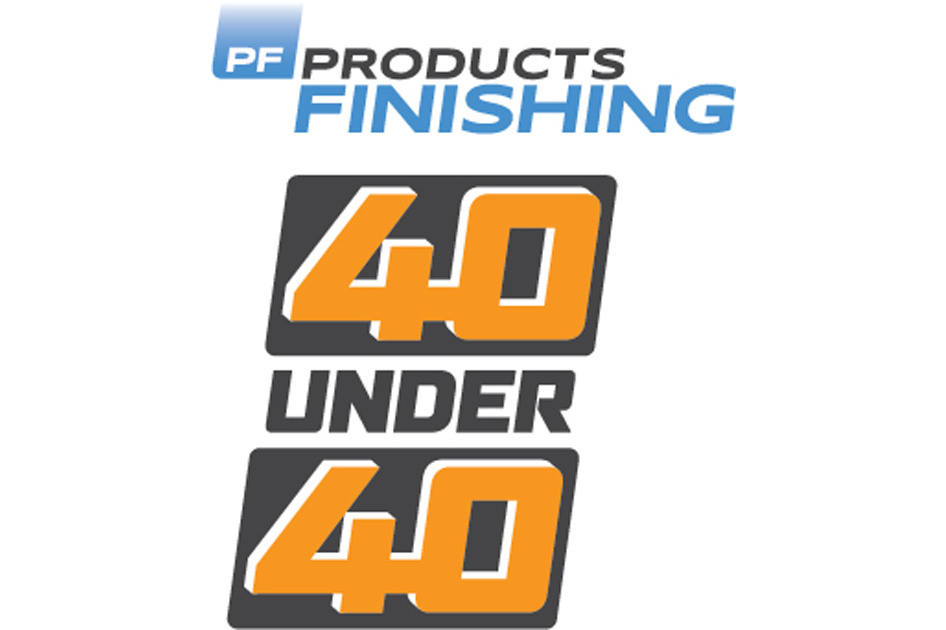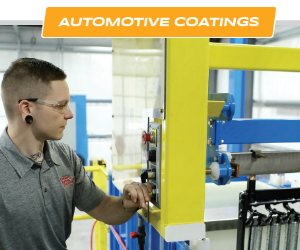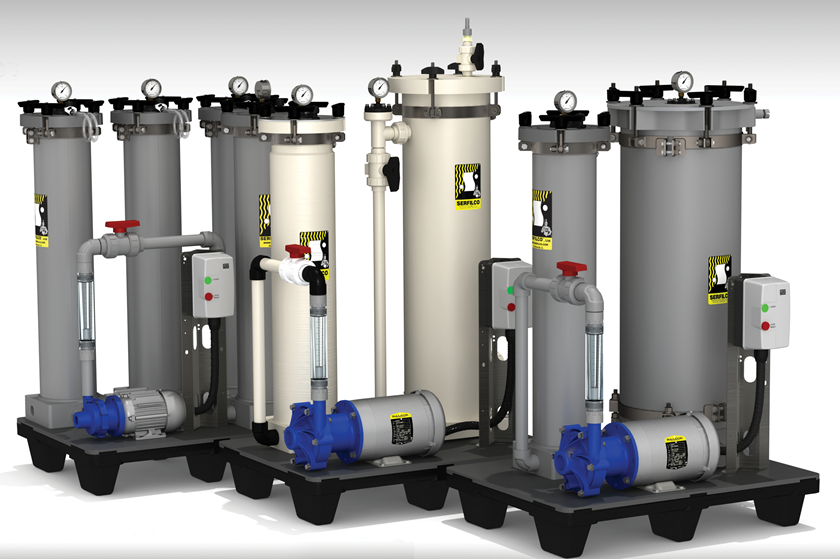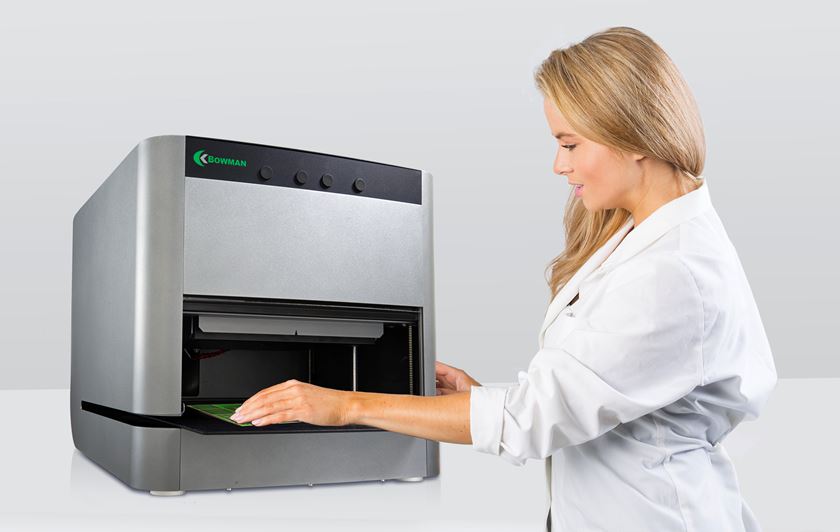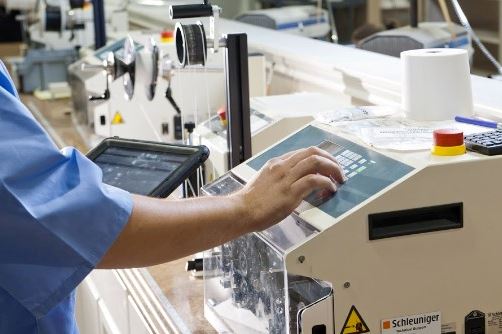40 Under 40: Dean Bell, Precision Finishing
Products Finishing is celebrating this year's inductees into its 40 Under 40 awards program for emerging coating and finishing industry leaders. In this video PF editor-in-chief Scott Francis interviews Dean Bell, operations manager for Precision Finishing, a third generation family-owned company offering solutions to the metal working industry for vibratory deburring, blast cleaning and aqueous washing.
Dean Bell has been with his family company, Precision Finishing, since 2013. In his time there, he has learned the business from the ground up to provide customers with solutions.
I recently had the opportunity for a video chat with Dean, who is clearly excited about the future of the industry. In this video he talks about how he came into the family business, the company’s approach and high-quality standards, trends in the finishing industry and much more.
Transcription
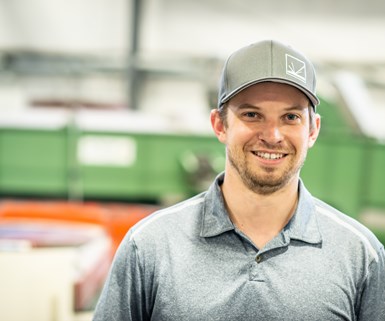
Dean Bell, operations manager, Precision Finishing Inc.
SF: Tell me how you got your start with precision finishing and tell me about your role today.
DB: I started with precision finishing just over seven years or finishing.
Started as a machine operator in our job shop.It's a family business. And so they threw me right in the shop. I worked in the shop for about 6 to 8 months, and then went from the shop to our lab, ran a lot of samples through a lot of sample processing process, development, new product development, and things like that.
Then I moved out to Pittsburgh, we have another shop … Checker Industries, it was more of a resale warehouse. We did have some job shop customers there. And when I moved out there, that was my main goal, was to get that shop up and running.So we turned that into a full job shop, vibratory finishing, blast finishing and washing shop.
I was out there for about 2.5, 3 years and moved back to Quakertown and got my start here as operations manager around that time. And that's my current role today.
SF: You've done a lot of different things kind of along the way while you were there. What would you say were some of themilestones, or things that maybe you implemented, that stood out?
DB: Yeah, there's definitely a few that stand out. I think the main one was moving out to Pittsburgh and pretty much starting with a clean slate. I learned a lot of the processes out here at our Quakertown location. But as soon as I moved out there as a clean slate, and I just got our job shop up and running! So it was moving it, putting new equipment in, getting a job shop customers, and working with our salesforce to start new projects.
And then it's just seeing that the fruit of the labor there, in that job shop, that job just been pretty successful last few years. And we're continuing to grow that and really push that shop.
Then the other one was we had the opportunity to build a brand new facility here in Quakertown. The company’s over 65 years old, and it was started out of a chicken, coup, on an old farm, and my grandfather started it.
And so, we, that building, had been added on to, you know, 10 times, probably, over the course of the 60 years. So, once my cousin and I got onboard, Jeffrey Valleys is pretty much started around the same time. Our dads are both in the business and they they saw that we're really interested and they gave us the ability to, to build a new facility.
They knew, we needed it, wanted to take this to the next level, and grow this, and grow our facility, grow our shop, that we couldn't do it in our facilities.So, they gave us the ability to really design, and I built a brand new, 40,000 square foot facility, new job shop.
So that was definitely one of the biggest milestones for the company. It was huge thing for the company, Huge undertaking. But just the planning and execution of that entire thing, we, we process millions of parts a year, And our remove took over 5 to 6 months to happen, and we didn't skip a beat that entire time.
SF: So, with kind of that in mind, and what kind of advice would you have for others who are finding their way in the industry?
DB: I think the two major pieces of advice that were given to me when I started: it's not work if you love what you do.
And then, in our industry, is attention to detail I mean, we are, the final finish, when it comes to, when it comes down to the products that we, we, we finish.
So, we're trying to produce the best possible finish we can, but having that attention to detail and noticing every little thing that comes in. We could be doing that same exact part for five years. But noticing when something is off, when it comes to us, as are all part, we gotta be able to catch that. Because, you know, a machine operator or their QC department might not recognize that. But, if we start finishing that part, and it's our problem.
So, Having the attention to detail is key, because, you know, we're typically the final finish that somebody is looking at.
RELATED CONTENT
-
Taking the (Oxide) Edge Off
Metal fabricators that laser-cut with oxygen take steps to prepare parts better for powder coating.
-
Making the Best Choices in Mass Finishing
Choice of equipment, media and compounds has a major impact on your finishing applications.
-
Polishing vs. Buffing: What's the Difference?
Is polishing the same as buffing? Mechanical finishing expert, Pat Wenino, explains the differences between the two processes.






